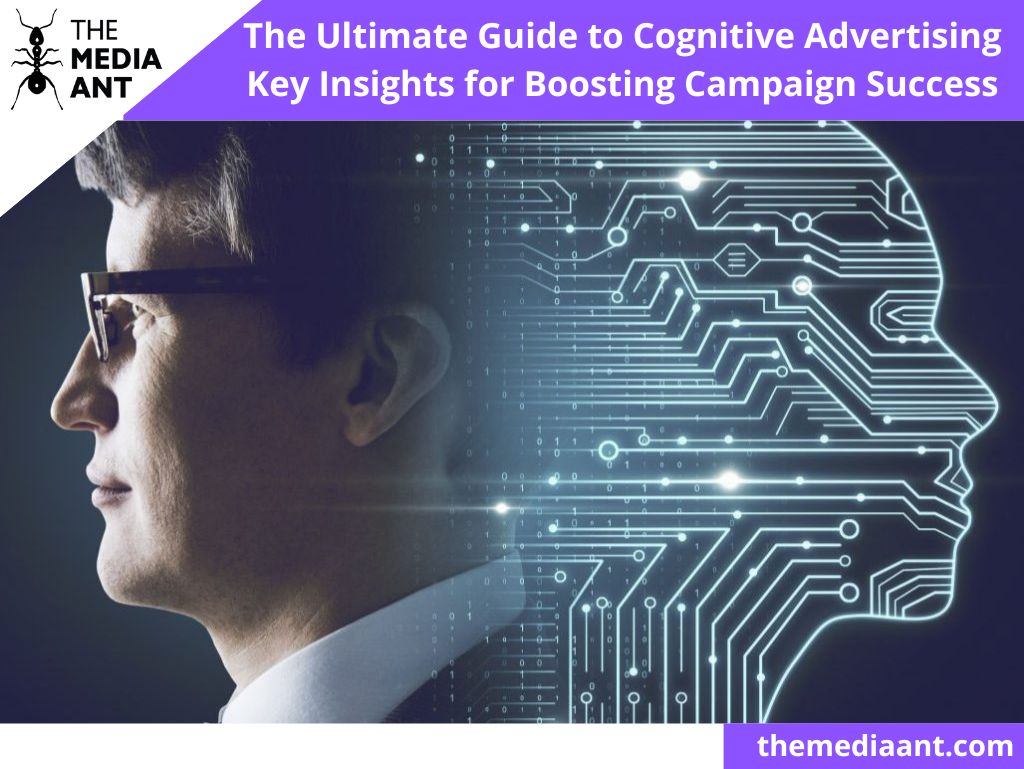Cognitive advertising is revolutionizing the digital marketing landscape with its unique blend of psychology, neuroscience, and technology. This innovative approach optimizes ad campaigns by tapping into cognitive marketing principles and understanding the cognitive processes that influence consumer behavior. In this guide, we will explore the foundations of cognitive advertising, examine its benefits, and discuss how you can harness its power to boost your campaign success.
Understanding the Foundations of Cognitive Advertising
Cognitive advertising builds upon the concept of cognitive marketing, which delves into the relationship between advertising and cognitive psychology. By focusing on key cognitive processes such as:
- Attention.
- Perception.
- Memory.
- Decision-making.
Cognitive advertising enables marketers to create ads that resonate with consumers and drive engagement.
The Power of Personalization in Cognitive Advertising
Personalization is a crucial aspect of cognitive advertising that allows marketers to tailor ad campaigns to individual consumer preferences. By leveraging cognitive marketing strategy and data-driven insights, companies like Amazon and Netflix have successfully implemented personalized advertising strategies, leading to increased engagement and conversions.
Emotional Triggers and Their Impact on Ad Engagement
Emotions play a pivotal role in consumer decision-making. Cognitive advertising seeks to leverage emotional triggers to create more effective ad campaigns. By understanding the power of emotions in marketing, businesses can craft emotionally charged ads that resonate with their audience and drive action.
Ethical Considerations in Cognitive Advertising
As cognitive advertising becomes increasingly sophisticated, it’s essential to address potential ethical concerns and challenges. To ensure responsible and transparent advertising practices, marketers should adhere to guidelines such as obtaining informed consent for data collection, safeguarding personal information, and being honest about the intent and purpose of their campaigns.
Measuring Cognitive Advertising Success: Metrics
Evaluating ad performance is crucial for the success of cognitive advertising campaigns. Key performance indicators (KPIs) such as:
- Click-Through Rate
- Conversion Rate
- Engagement Rate
The above help provide insights into campaign effectiveness. Utilizing analytics tools designed for cognitive advertising can help businesses optimize their campaigns and drive better results.
Types of Tools Used for Cognitive Marketing
Cognitive marketing relies on a range of advanced tools that leverage artificial intelligence, data analytics, and neuroscience insights to optimize marketing campaigns. Here are some key types of tools used for cognitive marketing:
AI-Driven Data Analytics Platforms
These tools help marketers analyze vast amounts of consumer data to derive valuable insights and make data-driven decisions. Examples of AI-driven data analytics platforms include:
- Adobe Analytics.
- IBM Watson.
- Google Analytics.
By utilizing machine learning algorithms, these platforms can identify trends, patterns, and correlations in customer behavior, enabling marketers to create targeted and personalized marketing strategies.
Neuromarketing Tools
Neuromarketing tools use neuroscience methods to study consumer reactions to marketing stimuli. These tools can provide valuable insights into the preferences and decision-making processes of customers. Examples of neuromarketing techniques include:
- Eye-tracking studies.
- Facial coding analysis.
- Electroencephalography (EEG).
By incorporating neuromarketing research into their strategies, marketers can optimize campaigns for maximum impact.
Personalization Engines
Personalization engines are software solutions that enable businesses to deliver tailored content, products, and promotions to individual customers based on their preferences and browsing history. Examples of personalization engines include:
- Dynamic Yield.
- Adobe Target.
- Evergage.
By leveraging customer data, these tools help marketers create customized marketing messages that foster loyalty and drive conversions.
Customer Relationship Management (CRM) Systems
CRM systems play a critical role in cognitive marketing by helping businesses manage customer interactions and data. For example
- Salesforce.
- Freshdesk.
- Zoho CRM.
Provide us with a centralized location for storing customer information, tracking sales activities, and managing marketing campaigns. With access to detailed customer profiles, marketers can create personalized and targeted marketing strategies that resonate with their audience.
Marketing Automation Platforms
Marketing automation platforms streamline marketing processes and help businesses create, manage, and analyze multi-channel marketing campaigns. Tools akin to:
- Marketo.
- Pardot.
- Eloqua.
Allow us to leverage AI-powered features to automate repetitive tasks, segment audiences, and deliver personalized content. By automating various aspects of cognitive marketing, these platforms enable marketers to focus on strategy and creative development.
Social Media Listening and Analytics Tools
These tools help businesses monitor and analyze conversations on social media platforms to understand customer sentiment, preferences, and trends. Examples of social media listening and analytics tools include:
- Brandwatch.
- Sprout Social.
- Hootsuite.
By capturing real-time insights from social media, marketers can tailor their cognitive marketing strategies to better align with their target audience’s needs and interests.
A/B Testing and Conversion Rate Optimization (CRO) Tools
A/B testing and CRO tools allow marketers to test different versions of marketing content and web pages to determine which one performs better. Platforms such as:
- Optimizely.
- VWO.
- Unbounce.
Help identify the most effective design, messaging, and layout options for driving conversions. By using these tools, marketers can refine their cognitive marketing campaigns based on data-driven insights, ensuring maximum impact and ROI.
SEO Strategies for Cognitive Advertising
SEO plays a significant role in digital advertising, helping businesses reach their target audience through search engines. By incorporating SEO best practices such as:
- Keyword Research.
- Ad Targeting.
- On-Page Optimization.
Marketers can boost their online visibility and increase the chances of campaign success.
Conclusion
Cognitive advertising offers a powerful and innovative way to create engaging, personalized, and emotionally resonant ad campaigns. By understanding the principles of cognitive marketing, leveraging neuromarketing techniques, and harnessing the power of AI and data analytics, businesses can elevate their advertising efforts and achieve better results. Embrace the future of advertising by incorporating cognitive strategies into your campaigns and watch your success soar.





